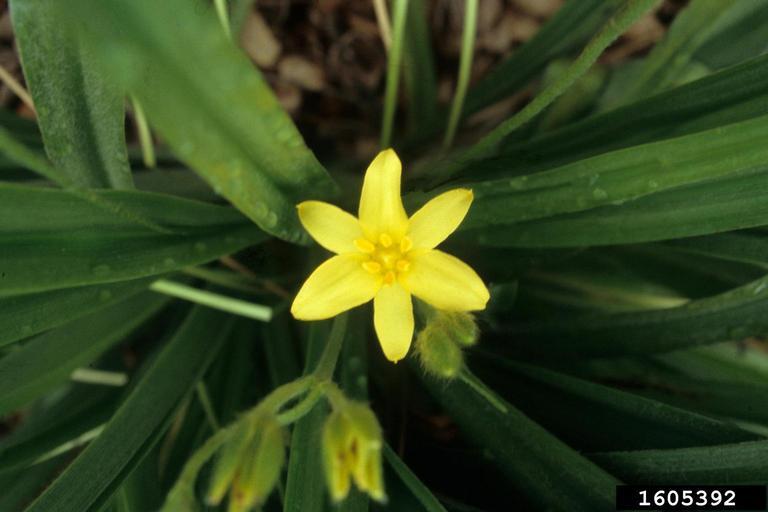The wild African Potato
If you are prone to urinary tract infections, having African Potato in your herbal supplement arsenal will be a godsend. African Potato is a hardy herb that has been used for centuries not only for UTIs but also for prostate problems. It is also excellent in purging parasites and toxins from your body. The powder made from African Potato is encapsulated to maximize the benefits of this herb, making it the ideal way to enjoy all the benefits this herb offers.
Let’s look a bit closer at this wild potato that is not a potato.
What is this curious herb called the African Potato?
This hardy plant is from the Hypoxis genus under the Hypoxidaceae family alongside the yellow stars flower. It is found in the grass-and-woodlands of Botswana and Swaziland. And is used for a wide variety of ailments, most commonly HIV and AIDS, but is also used for UTIs (Urinary Tract Infections). It has beautiful yellow petals in the shape of stars.
Did you know these facts about African Potato?
Did you know that the African Potato is said to be from the Lily family? However, more research shows no connection between the two families. The Hypoxis is the genus from the Hypoxidacaea family, which is also known as the star grass family. The other names for the African potato include Bantu Tulip, and my favorite one is the South African Star Grass (image below).


Images credit: IPM Images
The African Potato is an incredibly hardy plant that can survive frost and drought. It is easy to grow and looks really pretty in a garden as well. It thrives in nearly every type of soil and blooms throughout the summer months.
The Hypoxis name was thought out in 1759 by Carl Linnaeus. He was a famous Swedish botanist who helped develop the classification system used to identify plants and animals. The name Hypoxis comes from the words hypo and oxy. Hypo means below, while Oxy means sharp. This part of the name refers to a part of the plant called the ovary, the part of the plant that produces seeds after pollination. The other part of the name, Hemerocallidea, comes from the words hemara and kallos. Hemara means day and kallos means beauty and may refer to the flowers that don’t bloom for long and look like the day lily.
African Potato may have some great benefits
- African Potato may help to reduce the risk of cancer:
Some studies have shown that African Potato can help to reduce the risk of cancer. It can also help to boost the immune system in individuals undergoing cancer treatments. The antioxidant abilities reduce the risk of cancer by eliminating the oxidative stress that is said to be the cause of many types of cancer. The anti-inflammatory properties of the African potato can also lower the risk of developing cancer since inflammation has been linked to the growth of cancerous cells in a process called Carcinogenesis. Carcinogens are substances that can trigger this growth in healthy cells.
- African potato may help you manage your type 2 diabetes
Type 2 diabetes is a condition that involves the body’s inability to regulate glucose as fuel. This means that an individual with this condition has too much sugar in their bloodstream, which can negatively affect the nervous, circulatory, and immune systems. African Potato helps by encouraging the body to produce insulin, the hormone that is responsible for the management of glucose and thus helps to lower your blood sugar levels.
- It may help to improve and manage your immune system:
African Potato has immunomodulation properties, which means it helps to regulate the immune system. It also contains beta-sitosterol, which can help to boost your immune system. The antioxidants in African Potato also help to protect your immune system. The antibacterial properties help to reduce the risk of disease.
- African potato could help to improve your Human immunodeficiency virus (HIV) symptoms
HIV, or Human Immunodeficiency Virus, attacks your immune system and, if left untreated, can become AIDS, or Acquired Immunodeficiency Syndrome. Unfortunately, there is no cure for HIV at the moment and is a lifelong condition, but with proper medication, it can be controlled. African Potato can stimulate the immune system in those suffering from this condition, which can ease their symptoms.
- It could aid in the reduction of symptoms relating to UTIs:
Urinary tract infections are some nasty business, characterized by a burning feeling every time you urinate, urinating more often, and feeling pain in the lower back or tummy. women tend to get UTIs more often than men because the tube connecting the bladder to the urethral opening is shorter than the tube of men. African Potato has anti-bacterial properties that help to ease symptoms experienced by those with urinary tract infections. The anti-inflammatory properties may help to reduce some of the pain you may experience during this truly uncomfortable experience.
Possible risks associated with African Potato
African Potato is safe for most individuals, but it may have some side effects. These may include:
- Nausea
- Digestive discomfort
- Possible disruption to your sex drive
- And an irregular heartbeat
- Avoid use during pregnancy and breastfeeding, as there isn’t enough information regarding the safety of African potatoes.
- Be cautious of using African Potato if you are diabetic and consult with a healthcare professional before use. Also, check your blood sugar levels often, as African potatoes can lower your blood sugar.
- Avoid use if you have any kidney disease, as the African potato may worsen the symptoms of these conditions.
- Avoid use if you have a rare condition called Sitosterolemia, a disease that involves the body’s fat storage. Beta-Sitosterol in African potatoes may worsen this condition.
- Avoid using African potato for up to two weeks before surgery, as the blood sugar lowering abilities may interfere with medications given during and after surgery.
- Speak to your healthcare professional if you have any autoimmune disorders, as the immune-boosting properties may worsen these conditions.
There could be possible interactions with African Potato:
- Medications that affect the liver, such as lovastatin (Mevacor), ketoconazole (Nizoral), itraconazole (Sporanox), fexofenadine (Allegra), triazolam (Halcion and Elavil), haloperidol (Haldol), ondansetron (Zofran), propranolol (Inderal), theophylline (Theo-Dur, others), verapamil (Calan and Isoptin).
- Medications that interact with diabetic information, such as glimepiride (Amaryl), glyburide (DiaBeta, Glynase PresTab, Micronase), insulin, pioglitazone (Actos), rosiglitazone (Avandia), chlorpropamide (Diabinese), glipizide (Glucotrol), and tolbutamide (Orinase).
- Nonsteroidal anti-inflammatory medications may interact with African potatoes, such as diclofenac (Cataflam, Voltaren), ibuprofen (Motrin), meloxicam (Mobic), and piroxicam (Feldene); celecoxib (Celebrex); amitriptyline (Elavil); warfarin (Coumadin); glipizide (Glucotrol); losartan (Cozaar).
Final thoughts regarding the mysterious African potato:
Although there may not be as much information about the African Potato, one thing is clear: this herb is as versatile as they come. The benefits that this herb may offer your immune system are boundless, from strengthening a lowered immune system to helping to protect a healthy one. The impressive list of properties, such as Anti-inflammatory, Immunomodulator, anti-bacterial, and anti-carcinogenic to name but a few, offers a wide range of benefits that may help to improve your overall health without breaking the bank.
References:
- About HIV/AIDS | HIV Basics | HIV/AIDS | CDC. (n.d.). Retrieved September 26, 2022, from https://www.cdc.gov/hiv/basics/whatishiv.html#:%7E...
- African Wild Potato: Health Benefits, Side Effects, Uses, Dose & Precautions. (2021, June 11). RxList. Retrieved September 26, 2022, from https://www.rxlist.com/african_wild_potato/supplem...
- AFRICAN WILD POTATO: Overview, Uses, Side Effects, Precautions, Interactions, Dosing and Reviews. (n.d.-a). Retrieved September 26, 2022, from https://www.webmd.com/vitamins/ai/ingredientmono-6...
- AFRICAN WILD POTATO: Overview, Uses, Side Effects, Precautions, Interactions, Dosing and Reviews. (n.d.-b). Retrieved September 26, 2022, from https://www.webmd.com/vitamins/ai/ingredientmono-6...
- Carolus Linnaeus | Biography, Education, Classification System, & Facts. (2022, September 12). Encyclopedia Britannica. Retrieved September 26, 2022, from https://www.britannica.com/biography/Carolus-Linna...
- EdCaN - learning resources for nurses. (2022). Carcinogenesis. EdCaN - Learning Resources for Nurses. Retrieved September 24, 2022, from https://www.edcan.org.au/edcan-learning-resources/...
- Factsheet -Hypoxidaceae. (n.d.-a). Retrieved September 26, 2022, from https://keys.lucidcentral.org/keys/v3/South_Africa...
- Factsheet -Hypoxidaceae. (n.d.-b). Retrieved September 26, 2022, from https://keys.lucidcentral.org/keys/v3/South_Africa...
- Family: Hypoxidaceae (star-grass family): Go Botany. (n.d.-a). Retrieved September 26, 2022, from https://gobotany.nativeplanttrust.org/family/hypox...
- Family: Hypoxidaceae (star-grass family): Go Botany. (n.d.-b). Retrieved September 26, 2022, from https://gobotany.nativeplanttrust.org/family/hypox...
- Hess-Fischl, A., & Jaffe, L. (2022, February 15). What Is Insulin? EndocrineWeb. Retrieved September 24, 2022, from https://www.endocrineweb.com/conditions/type-1-dia...
- Hypoxis. (n.d.). Retrieved September 26, 2022, from http://www.biodiversityexplorer.info/plants/hypoxi...
- Hypoxis | PlantZAfrica. (n.d.). Retrieved September 26, 2022, from http://pza.sanbi.org/hypoxis
- Joubert, R. (2019). African Potato an indigenous medicinal botanical. Lady of the Herbs. Retrieved September 24, 2022, from https://ladyoftheherbs.co.za/2022/02/17/african-po...
- Matuanga, C., Morese, G., Gundidza, M., & Nhachi, C. (2020, June). African potato (Hypoxis hemerocallidea): a systematic review of its chemistry, pharmacology and ethno medicinal properties. ResearchGate. Retrieved September 24, 2022, from https://www.researchgate.net/publication/342113359...
- Matyanga, C. M. J. (2020a, June 11). African potato (Hypoxis hemerocallidea): a systematic review of its chemistry, pharmacology and ethno medicinal properties - BMC Complementary Medicine and Therapies. BioMed Central. Retrieved September 26, 2022, from https://bmccomplementmedtherapies.biomedcentral.co...
- Matyanga, C. M. J. (2020b, June 11). African potato (Hypoxis hemerocallidea): a systematic review of its chemistry, pharmacology and ethno medicinal properties - BMC Complementary Medicine and Therapies. BioMed Central. Retrieved September 26, 2022, from https://bmccomplementmedtherapies.biomedcentral.co...
- Matyanga, C. M. J. (2020c, June 11). African potato (Hypoxis hemerocallidea): a systematic review of its chemistry, pharmacology and ethno medicinal properties - BMC Complementary Medicine and Therapies. BioMed Central. Retrieved September 26, 2022, from https://bmccomplementmedtherapies.biomedcentral.co...
- Morris, S. Y. (2016, December 17). The African Wild Potato. Healthline. Retrieved September 26, 2022, from https://www.healthline.com/health/african-wild-pot...
- NHS website. (2022, May 6). Urinary tract infections (UTIs). nhs.uk. Retrieved September 26, 2022, from https://www.nhs.uk/conditions/urinary-tract-infect...
- Ojewole, J. A. O. (2022). Antinociceptive, anti-inflammatory and antidiabetic properties of Hypoxis hemerocallidea Fisch. & C.A. Mey. (Hypoxidaceae) corm [‘African Potato’] aqueous extract in mice and rats. Science Direct. Retrieved September 24, 2022, from https://www.sciencedirect.com/science/article/abs/...
- ovary | Botany, Definition, & Structure. (n.d.-a). Encyclopedia Britannica. Retrieved September 26, 2022, from https://www.britannica.com/science/ovary-plant
- ovary | Botany, Definition, & Structure. (n.d.-b). Encyclopedia Britannica. Retrieved September 26, 2022, from https://www.britannica.com/science/ovary-plant#:%7...
- Seeds and Plants. (2022). African Potato Medicinal Uses. Retrieved September 24, 2022, from https://seedsandplants.co.za/herbal-remedies/afric...
- SmallHolder. (2021, December 15). Growing The African Potato. South African Smallholder. Retrieved September 24, 2021, from https://sasmallholder.co.za/2021/12/15/growing-the...
- Type 2 diabetes - Symptoms and causes. (2021, January 20). Mayo Clinic. Retrieved September 26, 2022, from https://www.mayoclinic.org/diseases-conditions/typ...
- Urinary tract infections | Office on Women’s Health. (n.d.). Retrieved September 26, 2022, from https://www.womenshealth.gov/a-z-topics/urinary-tr...
- Wildflower Nursery. (n.d.). Wildflower Indigenous Plant Library. Retrieved September 26, 2022, from https://wildflowernursery.co.za/indigenous-plant-d...
- WIldflower Nursery. (n.d.). Wildflower Indigenous Plant Library. Wildflower Nursery. Retrieved September 24, 2022, from https://wildflowernursery.co.za/indigenous-plant-d...
- Wong, R. (2019, January 31). Role of Nonsteroidal Anti-Inflammatory Drugs (NSAIDs) in Cancer Prevention and Cancer Promotion. PubMed. Retrieved September 24, 2022, from https://pubmed.ncbi.nlm.nih.gov/30838040/#:~:text=...
Tags:













Leave a comment
Please note, comments need to be approved before they are published.